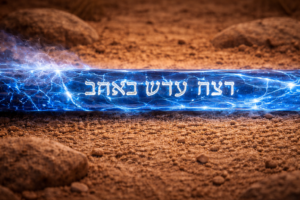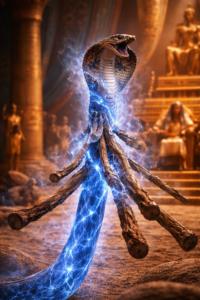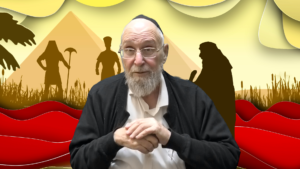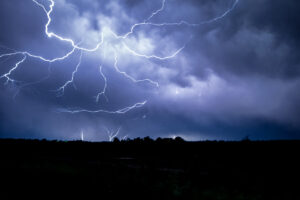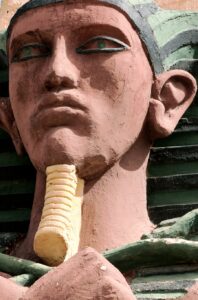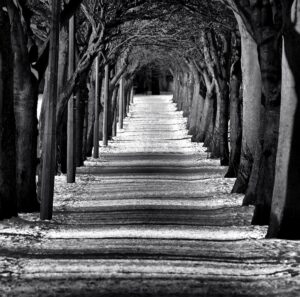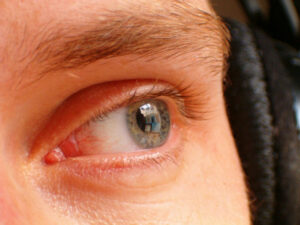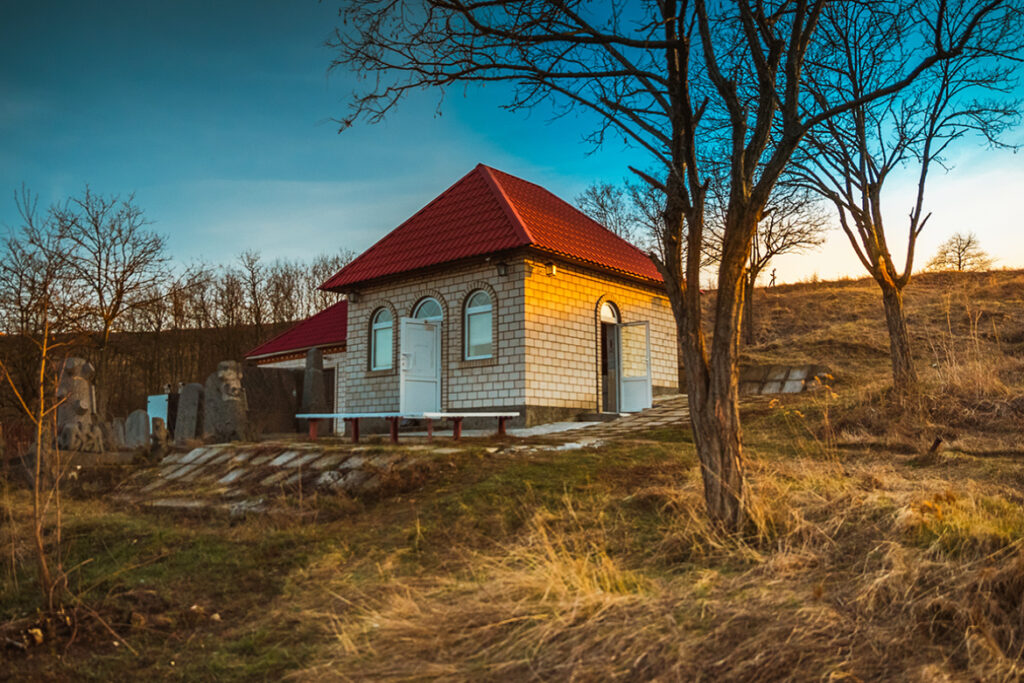When you have to: jump into the water – Parshat Beshalach
“It is better to die than to fall into the hands of the Cruel King, and perhaps I will manage to survive and enter the Water Castle.” This was the decision of the King’s daughter when she ran into the Water Castle. This is exactly how the Children of Israel felt when Pharaoh and Egyptians mobilized all their forces to pursue them.
This week’s Torah portion is parshat Beshalach. As we have seen in the previous Torah portions, parshat Va’era and parshat Bo, after G-d struck Egypt with the ten miraculous plagues, Pharaoh and Egyptians finally sent the Children of Israel out of Egypt without any conditions. The Children of Israel went out in all their strength and turned towards the desert. Only a few days passed, when Pharaoh was informed that the Children of Israel were not planning on returning to Egypt—they simply didn’t miss him. The Torah relates, “And it was told to the king of Egypt that the people had fled, and they heart of Pharaoh and his servants was transformed regarding the people, and they said, ‘What have we done that we sent away Israel from serving us?’ And he harnessed his chariot and took his nation with him…Egypt pursued them and overtook them, when they encamped by the sea…the Children of Israel raised their eyes and behold, Egypt was coming after them, and they were very frightened; the Children of Israel cried out to G-d…And G-d said to Moses, ‘Why are you crying out to Me? Speak to the Children of Israel and let them journey forth’” (Exodus 14:5-15).
Nachshon the son of Aminadav was the first to bravely jump into the sea. The water reached his neck and he shouted, “Save me, G-d, because the waters have reached my very soul.” The sea split before them and the Children of Israel crossed in the midst of the sea on dry land. And the Egyptians followed after them, but the water closed in on them and covered the Egyptians and they drowned in the sea. The Children of Israel praised G-d for their salvation: “Then Moses and the Children of Israel sang this song to G-d” (Exodus 15:1). But immediately afterwards, there was no water for the nation, and they complained. There was no bread, and they complained again. How can this be?
Now we will look closely at the story of the parsha from an interesting and fascinating angle. As is known, Rabbi Nachman told many stories which were collected into a book entitled “Rabbi Nachman’s Stories.” Through the narrative and prose, Rabbi Nachman told of kings, noblemen, and princes—legends infused with the Torah’s most wonderful hints and secrets. On the sixth day of the story of “The Seven Beggars,” Rabbi Nachman relates:
There was once a king who desired a Queen’s daughter. He made all kinds of plots to capture her until he was finally successful and took her captive. One night, he dreamt that she was standing over him, and she killed him. When he got up in the morning, he was upset and summoned the dream interpreters, and they all said that the dream would come true in its literally meaning: that she would kill him. The dream disturbed him deeply, and he did not know what to do with her. If he killed her, it would grieve him, for after all, she had not done anything to him. In addition, he really wanted her. Releasing her was not an option, for he had worked so hard to capture her. She might also marry someone else and then it would be easier for her to kill him, just as he had dreamt. This is how he would deliberate, and he could not figure out what to do. In the meantime, the Queen’s daughter understood that his love for her had waned, and she also developed a hatred for him, until one day she simply decided to flee.
Nachshon the son of Aminadav was the first to bravely jump into the sea. The water reached his neck and he shouted, “Save me, G-d, because the waters have reached my very soul.” The sea split before them…
She came to a castle that was made of water—the walls, floor, ceiling—everything was made of water. This wondrous castle was surrounded by ten walls of water. She stopped at the opening of the walls of the castle. To go in was certainly impossible because one would drown in the water. In the meantime, the king realized that she had fled from the palace, and he took his army and set out to capture her. He caught up with her when she was standing next to the Water Castle. When she realized that the king was chasing after her, she thought, “Better to die than to fall again into his hands. Maybe, in any case, I will be saved through a miracle, and I will be able to survive in the water.” She passed through all the walls and began to enter inside the castle. When the king saw that she was fleeing into the castle, he shot ten arrows at her. She somehow managed to enter the castle, but the poisonous arrows had wounded her, and she fell down unconscious. The king ran after her into the castle, but the moment he set foot on the floor, which was made of water, he drowned together with his soldiers. The Queen’s daughter remained there unconscious. There were those who thought that they could save her and heal her, but there was one there who said that only he had the power to save the Queen’s daughter and to heal her…
Rabbi Natan connects this wonderful story to this week’s parsha:
The soul of every Jew is called the daughter of the King because his soul is rooted in the Throne of Glory of The Holy One, blessed be He. Each soul has a duty to radiate Divine Light but gets caught by the “Old and Foolish King,”—a nickname for the evil inclination—which wants to bring each soul under his control. This applies to every soul, and it is also true with respect to the entire Nation of Israel when they were under the control of Pharaoh. Pharaoh wanted to conquer the Jewish souls and cause them to forget their origin and their purpose in life. And the same way that Pharaoh misled the Nation of Israel at first with words of flattery and praise saying that he had their best interests in mind, so too the souls of Israel were initially mistaken by love which was rooted in bodily desire and were captured by the deceptions of Pharaoh and the Evil Inclination.

The Children of Israel crossed in the midst of the sea on dry land. And the Egyptians followed after them, but the water closed in on them and covered the Egyptians and they drowned in the sea…
But just as in the story where the cruel king dreamed that one day she would kill him, so too do the forces of impurity know that one day this “romance” will end, and the souls of Israel will break out from under their control. This will be their end, as the Prophet says: “And the spirit of impurity shall pass from the earth.” At the same time, the souls of Israel will go through a similar process: the old love that comes from the bodily desires will become damaged, and the soul will awaken and decide to cut itself off from the forces of impurity and flee into the holy realms. But this is precisely when the forces of impurity will realize that this is their end, and they will mobilize all their forces to viciously pursue the hapless souls to bring them back under their control.
Meanwhile, the souls will seek a refuge and will reach the Castle of Water. This hints at “knowledge” as the verse says, “The earth will be filled with knowledge of Hashem like the water fills the sea.” Not everyone can enter there without drowning. There are ten walls of water there. These ten walls represent faith. Only one who has the power of faith can breach the walls, reach the water, and remain there safely without drowning.
Like the story of the princess, Pharaoh chased after the Children of Israel and caught up with them next to the sea, and the Egyptians fired arrows at them. The Torah relates that the Cloud of Glory protected the Nation of Israel from the arrows, and they entered the sea and were saved. Nevertheless, the venom of the ten arrows overcame them and caused a spiritual collapse, as it is written, “Misfortune will pass through the sea.” Even within the salvation of the splitting of the Red Sea, there still was misfortune: the poisonous heresy that later caused them to rebel during the ten trials with which the Almighty tested the Nation of Israel in the desert.
This is true of every day and at every time. When the soul tries to escape from the forces of impurity, they will try to fire poisonous arrows to destroy the soul from within. Until the healing will be complete, we will try to listen to the advice of the righteous and to come close to them, and thus we will be saved from the foreign influence of heresy. Only in the future will the healing be complete. Then we will be completely saved from heresy, and faith and knowledge of G-d will be complete, as it is written, “and the land will be filled with the knowledge of G-d,” Amen.
(From Likutei Halachot, Tolaiim 4)
- 0 comment



